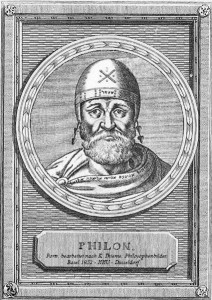John the Baptist was an important figure in the Gospel of John. First century Palestine was ripe with economic, political, and religious tensions. John the Baptist may have been an Essene, who had left one of the communities, to begin his own ministry. John began his ministry by baptizing his fellow Jews in the Jordan. Who was John the Baptist? Why was John the Baptist connected to Jesus, especially at the beginning, in the Gospel of John? John the Baptist was the forerunner of Jesus, without whom Christianity would not understand the calling of Jesus.
Who was John the Baptist? In John 1:6-8, John the Baptist was just the witness (testimony), meaning he was a testimony, in which he gave evidence about Jesus (Liddell and Scott says it like this: "bear favourable witness to, give a good report of a person"). Josephus (a first-century Jewish historian), claims that John the Baptist was believed by the people and that his death was the cause of the end of Herod Antipas. Josephus says that Herod had John the Baptist killed because he was afraid that John was going to cause a revolt (Antiquities 18.5.2). What does our text tell us of John the Baptist and his relation to Jesus as the Christ?
In this portion of the text, John the Baptist is approached by the Jews and asked if he is the "Christ, Elijah, or the Prophet." John the Baptist's answer was no to all three, which he then states that he is the one preparing the way for the Messiah. If he isn't any of these and he is the one crying in the desert, then what does all of this mean?
John the Baptist is not the Messiah. Part of the conflict in the political and religious turmoil in Palestine was based on the Jewish belief that a Messiah (at the time could be a priest, a king or both). The Jews believed that the Messiah(s) would liberate them from the Romans and usher in the apostolic reign of God. John the Baptist states that he is not this Messiah, but that he is preparing the way for Him. This is pretty understandable by the text, but what is not is the assumption of the Prophet and Elijah.
John the Baptist is not the Prophet and he is not Elijah. In the Torah, Moses spoke of a prophet that would lead the ancient Israelites: “The Lord your God will raise up for you a prophet like me from among you, from your brothers—it is to him you shall listen..."(Deut. 18:15 ESV). This was the prophet with which John the Baptist was being questioned. After denying being this prophet, he is asked if he is Elijah. According to Malachi, Elijah was to be sent back to the ancient Israelites on the "day of the Lord" (Mal. 4:5-6 ESV). Morris tells us that the Jews understood that Elijah had left, physically, into heaven and they believed that he would return this way. which was why John the Baptist said he was not Elijah (Morris, Gospel According to John, 134-135). John the Baptist puts this theory down, however, he states that he was the voice described in Isaiah: "A voice cries: 'In the wilderness prepare the way of the Lord; make straight in the desert a highway for our God (Isa. 40:3 ESV). John's use of Isaiah was for a reason, to be the one who helped the people prepare for the Messiah. In Isaiah's time, a person would go before a dignitary, preparing people for their arrival and keeping the roads clear for their arrival (Barton et. al., John, 19). This was John's special relationship to Jesus as the Messiah. This was why he came to baptize, to prepare the way for their Messiah.
If you have any questions, comments, or statements, then please leave them in the comment section below. I would love to know how you understand this verse, or how it has been taught in your faith communities. Leave me a comment guys, thanks and be blessed.
Bibliography
Barton, Bruce. et. al. Life Application Bible Commentary, John. Carol Stream: Tyndale House Publisher, 1993.
Morris, Leon. Gospel According to John. Grand Rapids: W. M. Eerdmans, 1992.
Whiston, William. Trans. New Complete Works of Josephus. Grand Rapids: Kregel, 1999.












